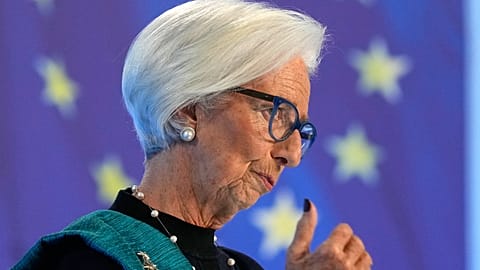Cooling inflation rates could reduce the interest payments due on variable mortgage plans, but analysts warn this won’t happen just yet.
For those trying to predict mortgage rate changes in the UK, the last few months have shown some mixed signals.
After a period of high inflation in the UK, economists were greeted with good news in October, as the rate at which prices increase continued to fall.
The Consumer Price Index, a common way to measure how fast costs are rising, was recorded at 4.6% in the year to October, down from 6.3% in September.
Whilst inflation is still above the Bank of England’s (BOE’s) target of 2%, there has been speculation about a cut in interest rates, which are used as a means to control inflation.
For homeowners on variable mortgage deals, this will be a welcome decision.
If the BOE’s interest rate goes down from its current value of 5.25%, the amount they’re expected to pay each month is likely to decrease.
Before the decision to hold rates steady in September, the UK witnessed 14 consecutive interest rate hikes, meaning that those on variable mortgage plans saw their payments skyrocket.
Yet whilst many are waiting impatiently for big cuts to monthly fees, analysts say this won’t come immediately.
“Whatever interest rate you paid on your mortgage in November, it’s likely you can budget for paying the same rate for the next six months or so,” said Amy Knight, personal finance expert at Nerdwallet UK.
Why are experts betting on steady rates?
Although inflation figures are moving in the right direction, there are a number of reasons why the BoE is hesitant to reduce interest rates and undo the progress it has made.
At a press conference on Wednesday, Governor Andrew Bailey reiterated his stance from last month: “Rates are likely to need to remain at these levels for an extended period to bring inflation back to target on a sustained basis.”
This cautious approach will also be taking into account pessimistic financial forecasts for the UK, such as projections from the Office for Budget Responsibility (OBR).
Earlier this year, the OBR predicted that the nation’s economy would grow by 1.8% in 2024 and 2.5% in 2025, but in November, these figures were downscaled to 0.7% in 2024 and 1.4% in 2025.
Added to this, the OBR expects inflation to remain above the 2% target until the first half of 2025, a year later than previously forecast.
The Bank of England will hold its next meeting to set interest rates on the 14th December, and new inflation data from the Office for National Statistics (ONS) will be released on the 20th.
How to cope with price spikes?
If you’re struggling with repayments, your lender is there to offer support and advice, and one option could be to change your mortgage plan.
For homeowners on a standard variable rate (SVR), it’s easy to switch to a new deal whenever you want, but for those on fixed-rate plans, this can be a little more complicated.
Whether you stay with the same bank or choose a new lender, leaving your fixed mortgage plan before your current product limit is up often incurs fees, so you need to assess your options carefully.
There is also the option of mortgage forbearance, which means you will continue with your current plan, but you will temporarily pause monthly payments or make smaller contributions.
According to financial advisors, this is often a risky solution.
“While mortgage forbearance may offer short-term relief to help get your finances back on track, it can lead to your mortgage costing more in the long run and could dent your credit score,” explained Amy Knight from Nerdwallet.
Fixed-rate mortgages offer less flexibility than variable deals, yet payments aren’t directly dependent on fluctuating base rates set by the BoE.
In the UK, fixed-plan fees have nonetheless been falling since the end of July as easing inflation and steady interest rates fill lenders with more confidence.
“Homebuyers with a 40% deposit have seen the average rate on a two-year 60% LTV fixed-rate mortgage drop to 4.90% on 28 November, from a peak of 6.38% on 25 July,” said Knight.


















